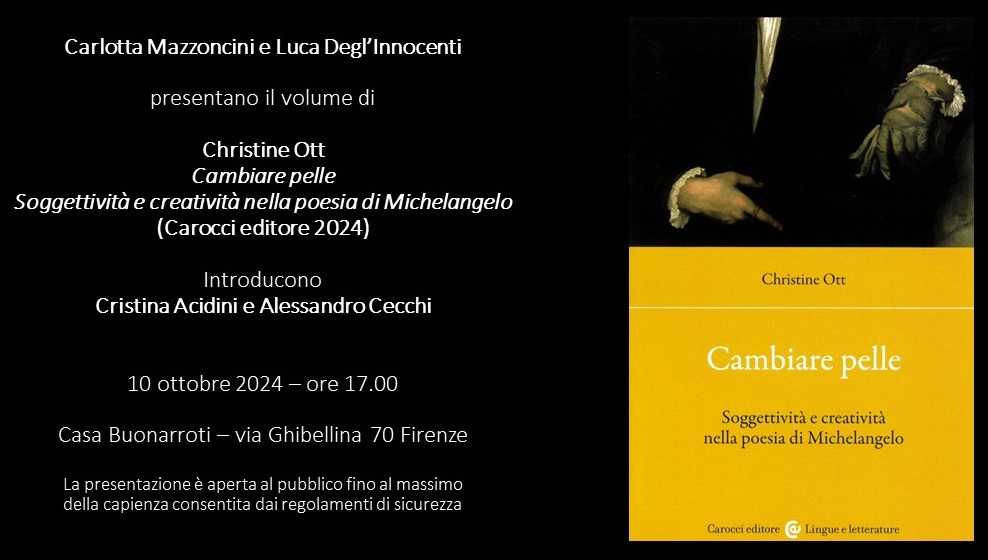Carocci editore 2024
 This volume offers a new perspective on Michelangelo’s poetry that, by combining historical-philological rigour with a topical perspective, highlights the themes of subjectivity, creativity and identity that lie at the heart of the artist’s rhizomatic writing. From the reading of Buonarroti’s poems emerges an anxious questioning of the danger and the possibilities for the individual subject to change skin, to transmigrate into the other self. Quoting theological dogmas and philosophical doctrines, but also drawing on the collective imagination of the Doppelgänger, he questions the relationship between body and soul, between beauty, individuality and creativity. His lyrical subject is a skin-ego: read in relation to his compositions and to the psychoanalytic concepts of the skin-ego and estimity, the shocking self-portrait in which, in the Last Judgement in the Sistine Chapel, Michelangelo’s face looks back at us through the skin of Saint Bartholomew thus acquires a new meaning.
This volume offers a new perspective on Michelangelo’s poetry that, by combining historical-philological rigour with a topical perspective, highlights the themes of subjectivity, creativity and identity that lie at the heart of the artist’s rhizomatic writing. From the reading of Buonarroti’s poems emerges an anxious questioning of the danger and the possibilities for the individual subject to change skin, to transmigrate into the other self. Quoting theological dogmas and philosophical doctrines, but also drawing on the collective imagination of the Doppelgänger, he questions the relationship between body and soul, between beauty, individuality and creativity. His lyrical subject is a skin-ego: read in relation to his compositions and to the psychoanalytic concepts of the skin-ego and estimity, the shocking self-portrait in which, in the Last Judgement in the Sistine Chapel, Michelangelo’s face looks back at us through the skin of Saint Bartholomew thus acquires a new meaning.
